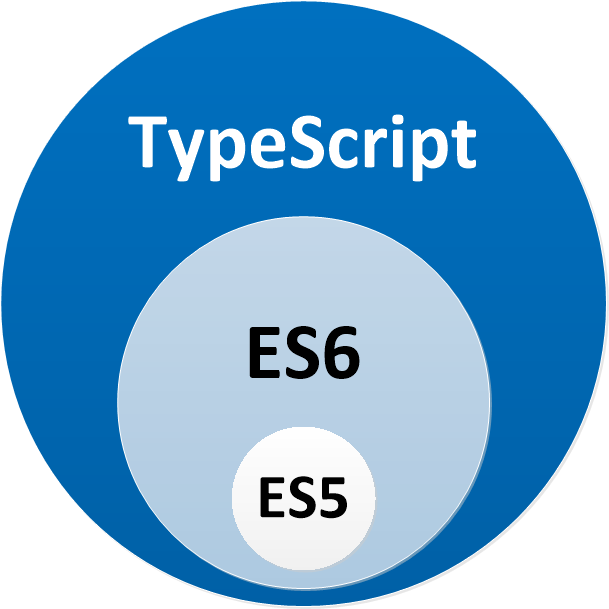https://github.com/hapinessjs/etcd3-module
ETCD3 client integration for Hapiness framework
https://github.com/hapinessjs/etcd3-module
Last synced: 23 days ago
JSON representation
ETCD3 client integration for Hapiness framework
- Host: GitHub
- URL: https://github.com/hapinessjs/etcd3-module
- Owner: hapinessjs
- License: mit
- Created: 2017-10-05T12:35:30.000Z (over 8 years ago)
- Default Branch: master
- Last Pushed: 2018-03-29T12:58:51.000Z (almost 8 years ago)
- Last Synced: 2025-01-30T23:03:29.713Z (about 1 year ago)
- Language: TypeScript
- Size: 181 KB
- Stars: 0
- Watchers: 6
- Forks: 0
- Open Issues: 0
-
Metadata Files:
- Readme: README.md
- License: LICENSE.md
Awesome Lists containing this project
README

# Etcd3 Module
```Etcd3``` module for the Hapiness framework.
## Table of contents
* [Using your module inside Hapiness application](#using-your-module-inside-hapiness-application)
* [`yarn` or `npm` it in your `package.json`](#yarn-or-npm-it-in-your-package)
* [Importing `Etcd3Module` from the library](#importing-etcd3module-from-the-library)
* [Using `Etcd3` inside your application](#using-etcd3-inside-your-application)
* [`Etcd3Service` api](#etcd3service-api)
## Using your module inside Hapiness application
### `yarn` or `npm` it in your `package.json`
```bash
$ npm install --save @hapiness/etcd3 @hapiness/core rxjs
or
$ yarn add @hapiness/etcd3 @hapiness/core rxjs
```
```javascript
"dependencies": {
"@hapiness/core": "^1.3.0",
"@hapiness/etcd3": "^1.0.3",
"rxjs", "^5.5.5"
//...
}
//...
```
[Back to top](#table-of-contents)
### Importing `Etcd3Module` from the library
This module provide an Hapiness extension for Etcd3.
To use it, simply register it during the ```bootstrap``` step of your project and provide the ```Etcd3Ext``` with its config
```javascript
@HapinessModule({
version: '1.0.0',
providers: [],
declarations: [],
imports: [Etcd3Module]
})
class MyApp implements OnStart {
constructor() {}
onStart() {}
}
Hapiness
.bootstrap(
MyApp,
[
/* ... */
Etcd3Ext.setConfig(
{
basePath: '/project/root';
client: { /* options comes here */};
}
)
]
)
.catch(err => {
/* ... */
});
```
The `basePath` key is optional and represents the prefix of all future keys. The default value is `/`.
The `IOptions` interface let you provide config to connect etcd. Allowed fields are:
```javascript
/**
* Optional client cert credentials for talking to etcd. Describe more
* {@link https://coreos.com/etcd/docs/latest/op-guide/security.html here},
* passed into the createSsl function in GRPC
* {@link http://www.grpc.io/grpc/node/module-src_credentials.html#.createSsl here}.
*/
credentials?: {
rootCertificate: Buffer;
privateKey?: Buffer;
certChain?: Buffer;
},
/**
* Internal options to configure the GRPC client. These are channel options
* as enumerated in their [C++ documentation](https://grpc.io/grpc/cpp/group__grpc__arg__keys.html).
*/
grpcOptions?: ChannelOptions,
/**
* Etcd password auth, if using.
*/
auth?: {
username: string;
password: string;
},
/**
* A list of hosts to connect to. Hosts should include the `https?://` prefix.
*/
hosts: string[] | string,
/**
* Duration in milliseconds to wait while connecting before timing out.
* Defaults to 30 seconds.
*/
dialTimeout?: number,
/**
* Backoff strategy to use for connecting to hosts. Defaults to an
* exponential strategy, starting at a 500 millisecond
* retry with a 30 second max.
*/
backoffStrategy?: IBackoffStrategy,
/**
* Whether, if a query fails as a result of a primitive GRPC error, to retry
* it on a different server (provided one is available). This can make
* service disruptions less-severe but can cause a domino effect if a
* particular operation causes a failure that grpc reports as some sort of
* internal or network error.
*
* Defaults to false.
*/
retry?: boolean
```
[Back to top](#table-of-contents)
### Using `Etcd3` inside your application
To use the `etcd3` module, you need to inject inside your providers the ```Etcd3Service```.
```javascript
class FooProvider {
constructor(private _etcd3: Etcd3Service) {}
getValueForKey(key: string): Observable {
return this._etcd3.get(key);
}
}
```
[Back to top](#table-of-contents)
## ```Etcd3Service``` api
```javascript
/**
*
* @returns {string} The value of the base path
*
*/
public get basePath(): string;
/**
*
* Retrieve the client without basePath consideration
*
* @returns {Namespace} the client for the namespace
*
*/
public get client(): Namespace;
/**
*
* Retrieve the client without basePath consideration
*
* @returns {Etcd3} the normal client (without namespace consideration)
*
*/
public etcd3Client(): Etcd3;
/**
*
* Get the value stored at path `key`.
*
* @param {string} key The key you want to retrieve the value
* @param {ResponseFormat} format The format you want for the result (default is string)
*
* @returns {string | object | number | Buffer | null | Error} The value of the object stored
*
*/
public get(key: string, format: ResponseFormat = ResponseFormat.String): Observable;
/**
*
* Get all keys and values stored under the given `prefix`.
*
* @param {string} prefix The prefix under which you want to start looking
*
* @returns { { [key: string]: string } } An object having all path as keys and all values stored under them
*
*/
public getWithPrefix(_prefix: string): Observable<{ [key: string]: string }>;
/**
*
* Append the value `value` at path `key`.
*
* @param {string} key The key you want to retrieve the value
* @param {string | Buffer | number} value The format you want for the result (default is string)
*
* @returns {IPutResponse} The result of the operation
*
*/
public put(key: string, value: string | number | Object | Buffer): Observable;
/**
*
* Delete the key `key`.
*
* @param {string} key The key you want to delete
*
* @returns {IDeleteRangeResponse} The result of the operation
*
*/
public delete(key: string): Observable;
/**
*
* Delete all registered keys for the etcd3 client.
*
* @returns {IDeleteRangeResponse} The result of the operation
*
*/
public deleteAll(): Observable;
/**
*
* Create a watcher for a specific key.
*
* @param {string} key The key you want to watch
* @param {string} prefix The prefix you want to watch
*
* @returns {Watcher} The watcher instance created
*
*/
public createWatcher(key: string, prefix?: boolean = false): Observable;
/**
*
* Create and acquire a lock for a key `key` specifying a ttl.
* It will automatically contact etcd to keep the connection live.
* When the connection is broken (end of process or lock released),
* the TTL is the time after when the lock will be released.
*
* @param {string} key The key
* @param {number} ttl The TTL value in seconds. Default value is 1
*
* @returns {Lock} The lock instance created
*
*/
public acquireLock(key: string, ttl: number = 1): Observable;
/******************************************************************************************
*
* Lease Operations
*
******************************************************************************************/
/**
*
* Create a lease object with a ttl.
* The lease is automatically keeping alive until it is close.
*
* @param {number} ttl The TTL value in seconds. Default value is 1
*
* @returns {Lease} The lease instance created
*
*/
public createLease(ttl: number = 1): Observable;
/**
*
* Create a lease object with a ttl and attach directly a key-value to it.
* The lease is automatically keeping alive until it is close.
*
* NOTE: Once the lease is closed, the key-value will be destroyed by etcd.
*
* @param {string} key The key where to store the value
* @param {string | Buffer | number} value The value that will be stored at `key` path
* @param {number} ttl The TTL value in seconds. Default value is 1
*
* @returns {Lease} The lease instance created
*
*/
public createLeaseWithValue(key: string, value: string | Buffer, ttl: number = 1): Observable;
```
[Back to top](#table-of-contents)
## Maintainers





Julien Fauville
Antoine Gomez
Sébastien Ritz
Nicolas Jessel
[Back to top](#table-of-contents)
## License
Copyright (c) 2017 **Hapiness** Licensed under the [MIT license](https://github.com/hapinessjs/minio-module/blob/master/LICENSE.md).
[Back to top](#table-of-contents)

